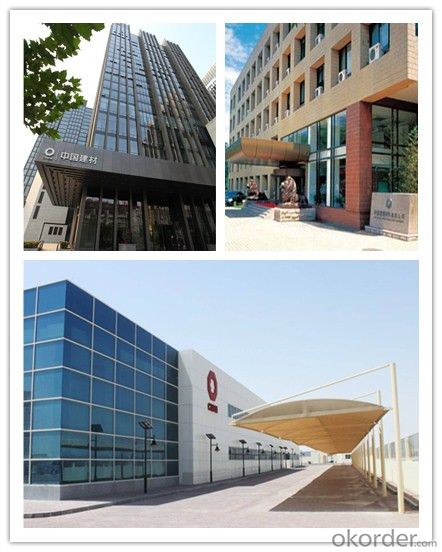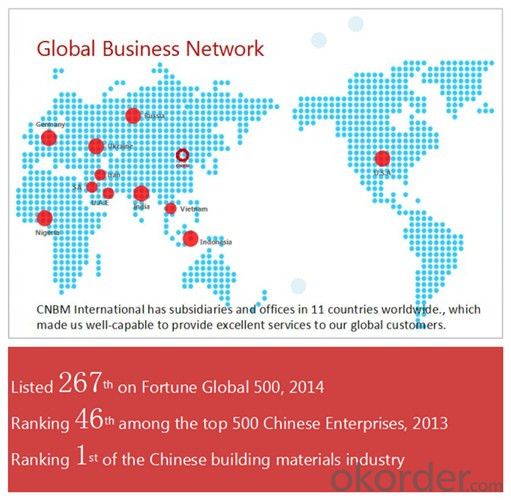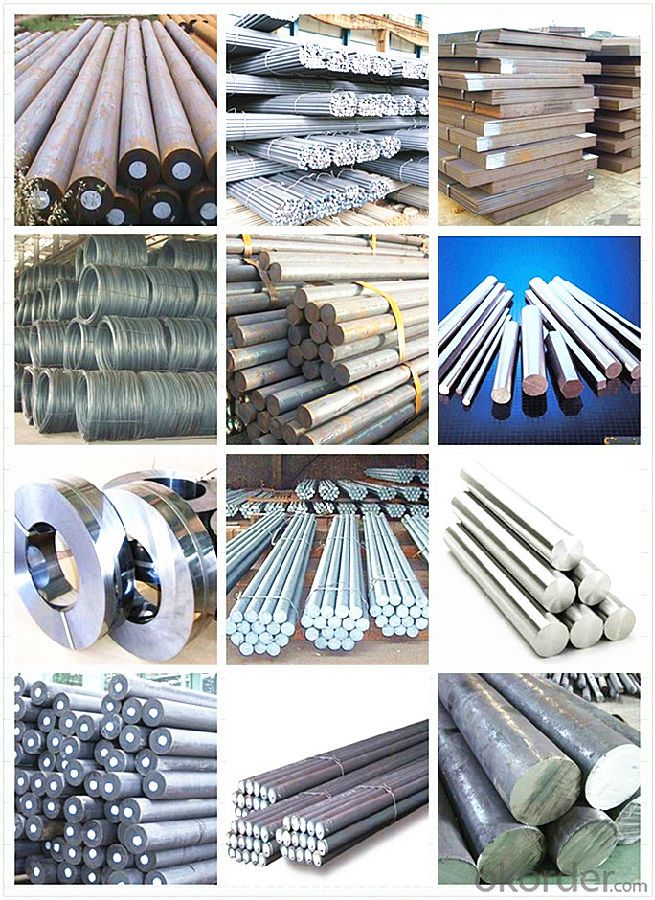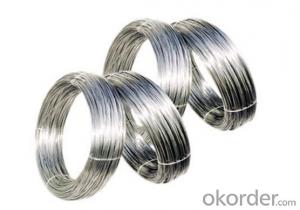Grade SAE 1006 Hot Rolled Steel Wire Rod in Coils
- Loading Port:
- Tianjin
- Payment Terms:
- TT OR LC
- Min Order Qty:
- 3 m.t.
- Supply Capability:
- 10000 m.t./month
OKorder Service Pledge
Quality Product, Order Online Tracking, Timely Delivery
OKorder Financial Service
Credit Rating, Credit Services, Credit Purchasing
You Might Also Like
Item specifice
Type:
Carbon Steel,Spring Steel,Bearing Steel,Gear Steel,Deformed Steel,Stainless Steel,Alloy Steel
Shape:
Steel Coil,Steel Sheet,Steel Wire Rod,Steel Flat Bar,Steel Square Bar,Steel Angle,Steel Round Bar,Steel Billets
Technique:
Hot Rolled,Cold Rolled,Cold Drawn,ERW,Forged,Saw,Extruded,EFW,Spring
Surface Treatment:
Galvanized,Coated,Copper Coated,Color Coated,Oiled,Dry,Chromed Passivation,Polished,Bright,Black,PVDF Coated
Certification:
ISO,SGS,BV,IBR,RoHS,CE,API,BSI,UL
Thickness:
5.5-12mm
Width:
5.5-12mm
Length:
in coils
Outer Diameter:
5.5-12mm
Net Weight:
2m.t.
Packaging:
seaworthy packaging
Grade SAE 1006 Hot Rolled Steel Wire Rod in Coils
Detailed Information of the Grade SAE 1006 Hot Rolled Steel Wire Rod in Coils
| Name | Hot Rolled High Carbon Wire Rod |
| Shape | Round Bar/Square Bar/Flat Bar/Plate/Wire |
| Standard | GB/ASTM/SAE/AISI/DIN/JIS/EN/BS |
| Surface Treatment: | Black/Peeling/Polished/Machined |
| Delivery Condition: | Hot Rolled or Forged/Peeled or Black Surface |
| Test | SGS/UT 100% Elements Testing |
| Certificate: | ISO/Mill Certificate |
| Service: | 24 hours online service / |
| more than 20 years trading and manufacture | |
| Quality Assurance: | the third party inspection, such as SGS, BV, TUV…etc. is acceptable |
| Packaging Details: | Seaworthy Packaging or as per customer's packing instruction |
Chemical Composition of the Grade SAE 1006 Hot Rolled Steel Wire Rod in Coils
| Grade | Chemical Composition(%) | |||||
| C | Mn | Si | S | P | B | |
| SAE1006B | 0.03~O.07 | ≤0.32 | ≤0.30 | ≤0.045 | ≤0.040 | >0.0008 |
| Mechanical properties | ||||||
| Yield strength(N/mm2) | Tensile strength(N/mm2) | Elongation(%) | ||||
| 250-280 | 350-380 | ≥32 | ||||
Company Introduction the Grade SAE 1006 Hot Rolled Steel Wire Rod in Coils
CNBM International Corporation is the most import and export platform of CNBM group(China National Building Material Group Corporation) ,which is a state-owned enterprise, ranked in 270th of Fortune Global 500 in 2015.
With its advantages, CNBM International are mainly concentrate on Cement, Glass, Iron and Steel, Ceramics industries and devotes herself for supplying high quality series of refractories as well as technical consultancies and logistics solution.


| After-sale service | CNBM provides the services and support you need for every step of our cooperation. We’re the business partners you can trust; you can relax and get on with doing business. |
| For any problem, please kindly contact us at any your convenient time, we’ll reply you in our first priority within 24 hours | |
| Advantages | Industry experience over 20 years. |
| Shipment of goods -More than 70 countries worldwide. | |
| The most convenient transport and prompt delivery. | |
| Competitive price with best service. | |
| High technical production line with top quality products. | |
| High reputation based on best quality products. |
Packaging & Delivery the Grade SAE 1006 Hot Rolled Steel Wire Rod in Coils
| Packaging Detail | Sea worthy packing /as per customer's packing instruction |
| Delivery Detail | 15 ~ 40 days after receiving the deposit |
Products Show

FAQ:
| Are you a trader or manufacturer? | Manufacturer |
| What’s the MOQ? | 3 metric ton |
| What’s your delivery time? | 15-35 days after downpayment received |
| Do you Accept OEM service? | Yes |
| what’s your delivery terms? | FOB/CFR/CIF |
| What's the Payment Terms? | 30% as deposit,70% before shipment by T/T |
| Western Union acceptable for small amount. | |
| L/C acceptable for large amount. | |
| Scrow ,Paybal,Alipay are also ok | |
| Why choose us? | Chose happens because of quality, then price, We can give you both. |
| Additionally, we can also offer professional products inquiry, products knowledge train (for agents), smooth goods delivery, excellent customer solution proposals. | |
| What's your available port of Shipment? | Main Port, China |
| What’s your featured services? | Our service formula: good quality+ good price+ good service=customer's trust |
| Where are your Market? | Covering more than 160 countries in the world |
- Q:Can special steel be used in the production of kitchen utensils?
- Yes, special steel can be used in the production of kitchen utensils. Special steel is a term used to describe steel alloys that have specific properties and characteristics, such as resistance to corrosion, high strength, and durability. These properties make special steel suitable for various applications, including the production of kitchen utensils. Kitchen utensils need to withstand regular use, exposure to water, and high temperatures. Special steel, such as stainless steel, is commonly used in the production of kitchen utensils due to its corrosion resistance and ability to withstand heat. Stainless steel utensils are known for their durability, resistance to rust, and ease of cleaning. In addition to stainless steel, there are other types of special steel that can be used in the production of kitchen utensils. For example, high carbon steel is commonly used in the production of chef knives due to its ability to maintain a sharp edge and its strength. Titanium-coated steel utensils are also available, providing additional benefits such as non-stick properties and enhanced durability. Overall, special steel is a versatile material that can be used in the production of a wide range of kitchen utensils. Its properties make it an excellent choice for manufacturers looking to produce durable and high-quality products that can withstand the demands of everyday use in the kitchen.
- Q:What are the main elements in special steel alloys?
- The main elements in special steel alloys can vary depending on the specific type of alloy and its intended application. However, there are several common elements that are often present in special steel alloys. These include: 1. Iron (Fe): Iron is the main component of steel alloys, providing its base strength and durability. 2. Carbon (C): Carbon is a key element in steel alloys, as it significantly influences the hardness and strength of the material. Different levels of carbon content can result in varying properties, such as high carbon steel for increased hardness or low carbon steel for improved ductility. 3. Chromium (Cr): Chromium is commonly added to steel alloys to enhance their corrosion resistance. It forms a protective layer on the surface of the alloy, preventing oxidation and rusting. 4. Nickel (Ni): Nickel is often used in special steel alloys to improve their resistance to heat and corrosion. It also contributes to enhancing the material's strength and toughness. 5. Manganese (Mn): Manganese is commonly added to steel alloys to improve their workability and machinability. It also enhances the material's strength and impact resistance. 6. Molybdenum (Mo): Molybdenum is frequently included in special steel alloys to increase their strength, hardness, and high-temperature resistance. It also improves the alloy's ability to withstand corrosion. 7. Vanadium (V): Vanadium is often added to steel alloys to enhance their strength, toughness, and heat resistance. It also aids in refining the grain structure of the alloy, resulting in improved performance. These are just a few examples of the main elements commonly found in special steel alloys. Depending on the specific requirements and desired properties, other elements such as tungsten, cobalt, copper, and titanium may also be present in varying amounts. The combination of these elements in different proportions allows for the creation of specialized steel alloys with unique properties tailored for specific applications in industries such as aerospace, automotive, construction, and manufacturing.
- Q:How does corrosion-resistant steel protect against chemical attacks?
- Corrosion-resistant steel protects against chemical attacks by forming a protective layer on its surface that prevents the penetration of corrosive substances. This layer, usually composed of chromium oxide, acts as a barrier that shields the underlying steel from the damaging effects of chemicals, thus preserving its structural integrity and preventing corrosion.
- Q:What are the different joining methods used for special steel?
- The different joining methods used for special steel include welding, soldering, brazing, and mechanical fastening. Welding involves melting the base metal and adding a filler material to create a strong bond. Soldering and brazing use lower temperatures to join the steel using a filler material with a lower melting point. Mechanical fastening methods include bolts, nuts, screws, and rivets, which provide a secure connection without altering the base metal's properties.
- Q:How does special steel contribute to the renewable energy storage?
- Special steel plays a crucial role in renewable energy storage by enabling the construction of durable and efficient energy storage systems. It is used in the manufacturing of batteries, fuel cells, and other components, providing strength, corrosion resistance, and thermal stability. The high-quality properties of special steel help enhance the performance and longevity of renewable energy storage technologies, ensuring their reliability and contributing to the overall sustainability and viability of the renewable energy sector.
- Q:How is special steel used in the telecommunications supply chain?
- Special steel is used in the telecommunications supply chain for various applications. It is commonly used in the manufacturing of infrastructure components such as transmission towers, antenna supports, and cable trays. The high strength and durability of special steel make it suitable for withstanding extreme weather conditions and ensuring the stability and reliability of telecommunications networks. Additionally, special steel is also used in the production of cables, connectors, and other equipment that require corrosion resistance and electrical conductivity, contributing to the efficient transmission of signals in the telecommunications industry.
- Q:What are the different methods for joining special steel components?
- There are several methods for joining special steel components, each with its own advantages and limitations. Some of the common methods include: 1. Welding: This is one of the most widely used methods for joining steel components. It involves melting the edges of the components and fusing them together. Welding can be done using various techniques such as arc welding, gas welding, or laser welding, depending on the specific requirements of the project. 2. Bolting: Bolting involves using bolts, nuts, and washers to join steel components together. This method is preferred for applications where disassembly or maintenance may be required. It provides a strong and reliable connection but may not be suitable for high-stress applications. 3. Riveting: Riveting involves using metal fasteners called rivets to join steel components together. This method is commonly used in applications where high strength and resistance to vibration are required. Riveting is a permanent joining method that provides a strong and durable connection. 4. Adhesive bonding: Adhesive bonding involves using high-strength adhesives to join steel components together. This method is preferred for applications where aesthetics and weight reduction are important. Adhesive bonding can provide a strong and durable connection, but the surface preparation and adhesive selection are critical for ensuring the bond's strength. 5. Mechanical fastening: Mechanical fastening methods, such as using screws or clips, can also be used to join special steel components. This method is often used for temporary connections or for components that need to be easily assembled and disassembled. Each joining method has its own advantages and considerations, and the choice of method depends on factors such as the specific application, load requirements, lifespan expectations, cost considerations, and the nature of the steel components being joined. It is important to carefully evaluate these factors and consult with experts to determine the most suitable joining method for a given project.
- Q:How does special steel contribute to the pharmaceutical aftermarket industry?
- The pharmaceutical aftermarket industry greatly relies on special steel, which offers numerous benefits that enhance the efficiency and quality of pharmaceutical products. Firstly, special steel's resistance to corrosion and wear makes it ideal for manufacturing pharmaceutical equipment like tanks, vessels, and pipelines. This resistance guarantees the equipment's integrity and prevents any contamination of pharmaceutical products. Furthermore, special steel possesses outstanding heat resistance, enabling it to withstand high temperatures without deformation or degradation. This is especially crucial in pharmaceutical manufacturing processes involving heat, such as sterilization or drying. Special steel's heat resistance ensures the equipment remains stable and reliable, ensuring the safety and effectiveness of pharmaceutical products. Moreover, special steel is renowned for its strength and durability, making it capable of enduring rigorous usage in the pharmaceutical industry. This is vital in the aftermarket industry, where pharmaceutical equipment often undergoes frequent repairs or modifications. The strength and durability of special steel facilitate easy maintenance and repair, reducing downtime and costs for pharmaceutical companies. Additionally, special steel offers excellent hygiene properties, as it can be easily cleaned and sanitized. This is of utmost importance in the pharmaceutical industry, where stringent hygiene standards are crucial to prevent contamination or cross-contamination of pharmaceutical products. Special steel's ease of cleaning and sanitization ensures the equipment remains free from potential sources of contamination, thereby preserving the integrity and quality of the products. In summary, special steel significantly contributes to the pharmaceutical aftermarket industry by providing corrosion resistance, heat resistance, strength, durability, and excellent hygiene properties. These characteristics ensure the integrity, safety, and effectiveness of pharmaceutical products, while also minimizing maintenance costs and downtime for pharmaceutical companies. Thus, special steel plays a pivotal role in the overall efficiency and success of the pharmaceutical aftermarket industry.
- Q:What are the different applications of special steel in the construction industry?
- Special steel has various applications in the construction industry, including the production of structural elements like beams and columns, reinforcing bars, and fasteners. It is also used in the manufacturing of high-strength and corrosion-resistant components for bridges, high-rise buildings, and infrastructure projects. Additionally, special steel finds application in the construction of offshore platforms, pipelines, and other critical structures that require exceptional durability and performance.
- Q:What is special steel? What is special steel?
- Special steel is the abbreviation of special steel, which is the most important factor in the steel industry of most industries in the national economy, such as machinery, automobile, military industry, chemical industry, household electrical appliance, shipping, traffic, railway and new industries.
1. Manufacturer Overview |
|
|---|---|
| Location | |
| Year Established | |
| Annual Output Value | |
| Main Markets | |
| Company Certifications | |
2. Manufacturer Certificates |
|
|---|---|
| a) Certification Name | |
| Range | |
| Reference | |
| Validity Period | |
3. Manufacturer Capability |
|
|---|---|
| a)Trade Capacity | |
| Nearest Port | |
| Export Percentage | |
| No.of Employees in Trade Department | |
| Language Spoken: | |
| b)Factory Information | |
| Factory Size: | |
| No. of Production Lines | |
| Contract Manufacturing | |
| Product Price Range | |
Send your message to us
Grade SAE 1006 Hot Rolled Steel Wire Rod in Coils
- Loading Port:
- Tianjin
- Payment Terms:
- TT OR LC
- Min Order Qty:
- 3 m.t.
- Supply Capability:
- 10000 m.t./month
OKorder Service Pledge
Quality Product, Order Online Tracking, Timely Delivery
OKorder Financial Service
Credit Rating, Credit Services, Credit Purchasing
Similar products
New products
Hot products
Related keywords
































